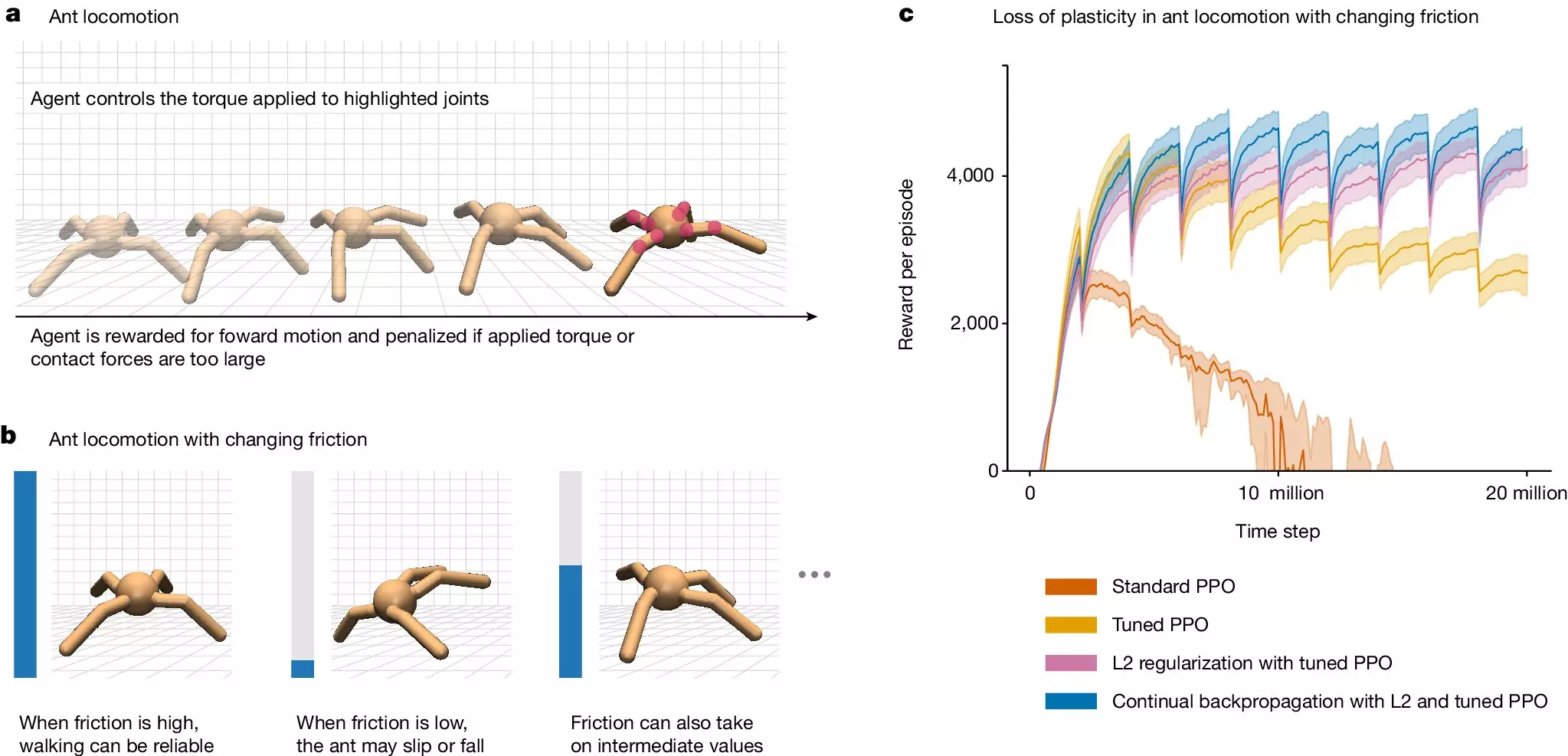The team of researchers at the Alberta Machine Intelligence Institute (Amii) have uncovered a significant challenge in the world of machine learning – the loss of plasticity in deep continual learning. This problem, which has long been suspected but not thoroughly investigated, poses a serious obstacle to developing advanced AI systems that can adapt and learn effectively in real-world scenarios. The inability of deep learning agents to retain their ability to learn over time, combined with the failure to relearn previously acquired knowledge, presents a daunting challenge in the field of artificial intelligence.
The researchers, led by A. Rupam Mahmood and Richard S. Sutton, set out to explore this phenomenon and shed light on the implications it poses for the future of AI development. Through a series of experiments, they were able to demonstrate the widespread nature of the problem and its profound impact on deep learning systems. By showing that loss of plasticity is a significant issue that cannot be ignored, the team has taken a crucial first step towards addressing this complex challenge.
In their quest to find a solution to the loss of plasticity problem, the researchers developed a novel approach known as “continual backpropagation”. This method, which builds upon the fundamental principles of neural network algorithms, aims to address the issue of dead weights in the network that hinder the learning process over time. By periodically reinitializing unproductive units during the learning process, the researchers found that models were able to continue learning indefinitely in some cases.
While the team’s work represents a significant advancement in understanding and potentially overcoming the challenges posed by loss of plasticity in deep learning systems, there is still much more to be done. As other researchers in the field explore alternative solutions and build upon the findings of this study, the hope is that a more comprehensive and effective approach to continual learning in AI can be developed. By bringing awareness to the issue of loss of plasticity and inspiring further research in this area, the team at Amii has opened the door to new possibilities for the future of artificial intelligence.
The discovery of loss of plasticity in deep continual learning represents a major milestone in the field of AI research. By identifying the problem, showcasing its widespread impact, and proposing a promising solution in the form of continual backpropagation, the researchers at Amii have made significant strides towards unlocking the potential of advanced AI systems. As the quest for human-level artificial intelligence continues, addressing the challenges of continual learning will be crucial in paving the way for a future where AI can adapt and thrive in ever-changing environments.


Leave a Reply